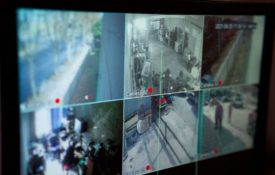-

Careers Up Close: Kimin Eom on Keeping the Faith in Sustainability Research
Assistant professor at Singapore Management University Kimin Eom discusses his research into prosociality, maintaining morale, and helping others build on their successes.
-

Teaching: Why the Bias Blind Spot Matters and How to Reduce It
We often recognize bias in others but rarely in ourselves. Teaching students about the bias blind spot can help them increase their self-knowledge and reduce interpersonal conflicts.
-

Teaching: The Perils of Post-Event Identification
Eyewitness memory is susceptible to distortions that can lead a witness to mistakenly identify an innocent suspect as a perpetrator. Teach students about the challenges inherent in identifying a face from a video image.
-

Student Notebook: Tips and Tricks for International Students’ Survival in a Foreign Land
“The good news is that most international students have an ultimately positive experience, just as I have,” says Doroteja Rubez in this column. “Here are my suggestions for other international students—as well as their allies.”
-

Back Page: Bringing Climate Change Home
Norman D Henderson Professor of Psychology and Environmental Studies at Oberlin College Cindy Frantz discusses her research into humans’ relationship with the natural world, promoting sustainability, and developing strategies that can help generate support to addressing climate change.
-

APS Teaching Fund Showcase: Psychological Detective Activity Boxes
With the help of a $5,000 grant from the APS Fund for Teaching and Public Understanding of Psychological Science, John Marazita and Maryam Elmajadoubi, an undergraduate honors student, created Psychological Detective Activity Boxes to promote a new generation of psychological scientists.

